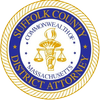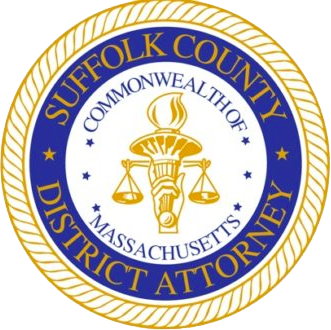District Attorney Rollins Convenes Hinton Lab Initiative Summit
Also moves to vacate over 100 remaining “List 3” cases
BOSTON, April 29, 2021 — Opening a summit to craft a systemic response to the malfeasance of the “management” of the Hinton Lab, District Attorney Rachael Rollins today said that any results from the lab while it employed two convicted chemists are inherently suspect.
“As members of law enforcement, we must be held to a higher standard. We hold immense power in the criminal legal system and have virtually unchecked discretion to arrest, document, charge, and seek pre-trial detention. We are cloaked in credibility due to the reasonable presumption that everything we do is ethical, morally sound, and constitutional. And it should be. Anything less is a disservice to the communities we serve and erodes trust in the criminal legal system,’’ DA Rollins said. “It is never too early to address egregious and systemic misconduct, and it is never too late to rectify an injustice.’’
Crafting a comprehensive response to the systemic harm caused by the now-closed William A. Hinton State Laboratory Institute requires the collaboration of a full range of stakeholders. The Summit gathered some 70 colleagues, including prosecutors, defense attorneys, members of the Trial Court, academics, data scientists, and policy professionals from across Massachusetts and beyond. Through a collaborative, multi-pronged approach, the group began the process of crafting a global and equitable resolution for all controlled substance convictions resulting from analyses conducted at the Hinton Lab between May 1, 2003 and August 30, 2012, the period of time in which either disgraced chemists Annie Dookhan and/or Sonja Farak worked at the facility until its closure by Governor Deval Patrick. The Initiative potentially impacts tens of thousands of defendants in Suffolk County.
Last month in a court filing DA Rollins announced her Hinton Lab Initiative, pledging to vacate Suffolk County drug convictions for any individual whose drug certification was done at the Hinton Lab between May 2003 and August 2012.
The Hinton Lab Initiative, a sweeping reform built on a unique platform of collaboration, is needed because the Commonwealth failed “to adequately and appropriately manage a forensic agency that provided prima facie evidence used to convict” defendants, an utter failure that “constitutes misconduct and demands the result here,’’ the filing said. The extraordinary effort is outlined in an assent to a defense motion for a new trial for Justino Escobar, whose 2009 plea was “unfortunately one of too many where the integrity of the conviction is now suspect due to the notorious misconduct’’ that occurred at the Hinton Lab.
In all, chemists working at Hinton during this nine-year period analyzed and certified some 82,800 samples from Suffolk County. More than 7,800 of those cases were already reviewed and vacated with prejudice as part of the Supreme Judicial Court’s 2017 ruling in Bridgeman and others v. District Attorney for the Suffolk District and others. But there are some 74,800 Suffolk County certifications that were not reviewed, and they will be the subject of the proposed global resolution. Since one certification may be evidence used against multiple defendants and one defendant may have multiple certifications, the precise number of defendants impacted by this initiative is still to be determined.
At the summit, four working groups met individually to begin the work of the Hinton Lab Initiative. The Data Working Group will bring together technical specialists to efficiently identify impacted individuals and streamline the process of repairing systemic harm; the Sentencing Integrity Working Group will develop strategies to rectify collateral consequences, especially unjust sentences and immigration actions, that stem from Hinton Lab analysis; the Global Remedy Working Group will pursue an appellate systemic solution to the impact of the Hinton Lab, focusing on strategic litigation in the Massachusetts courts; and finally, the Systemic Response Working Group will develop safeguards to prevent future misconduct and create new strategies to equitably respond to systemic errors. DA Rollins appointed her General Counsel Donna Patalano and Chief of Major Felony Ryan Mingo as co-Directors of the Initiative.
“This is not an academic exercise. The collateral consequences of a criminal conviction can have life-long impacts on an individual’s capacity to gain employment, attend college, secure housing, and use government benefits, as well as many other opportunities,’’ DA Rollins said. “It is why correcting the injustice and harm related to the Hinton Lab is so important.”
In a related matter, DA Rollins’ Integrity Review Bureau today asked a Single Justice of the state’s Supreme Judicial Court to vacate all remaining List Three convictions, which once totaled 117 cases, and now is less than 110. Last year, David Lewis, the Chief of DA Rollins’ Integrity Review Bureau, asked a Single Justice to vacate all remaining identified List Three convictions in Suffolk County. The List Three cases were those that District Attorneys did not move to vacate following the SJC’s landmark decision in Bridgeman and others v. District Attorney for the Suffolk District and others. In Bridgeman, the Commonwealth’s District Attorneys were required to certify that they could produce evidence at a retrial, independent of Dookhan’s signed drug certificate or testimony, that the substance at issue was the drug alleged in the charge. The Single Justice at a hearing in December asked for more information on each defendant, and that information has now been provided.
“Overall, today was a big day in Suffolk County. We just took a giant first step toward admitting and rectifying past harm and misconduct by the government surrounding the Hinton Lab. And there will be more to come,” said DA Rollins.
Suffolk County District Attorney Rachael Rollins’ office serves the communities of Boston, Chelsea, Revere, and Winthrop, Mass. The office handles over 25,000 cases a year. More than 160 attorneys in the office practice in nine district and municipal courts, Suffolk Superior Court, the Massachusetts Appeals Court, the Supreme Judicial Court, and the Boston Juvenile Courts. The office employs some 300 people and offers a wide range of services and programs to serve anyone who comes in contact with the criminal justice system. This office is committed to educating the public about the services we provide, our commitment to crime prevention, and our dedication to keeping the residents of Suffolk County safe.


